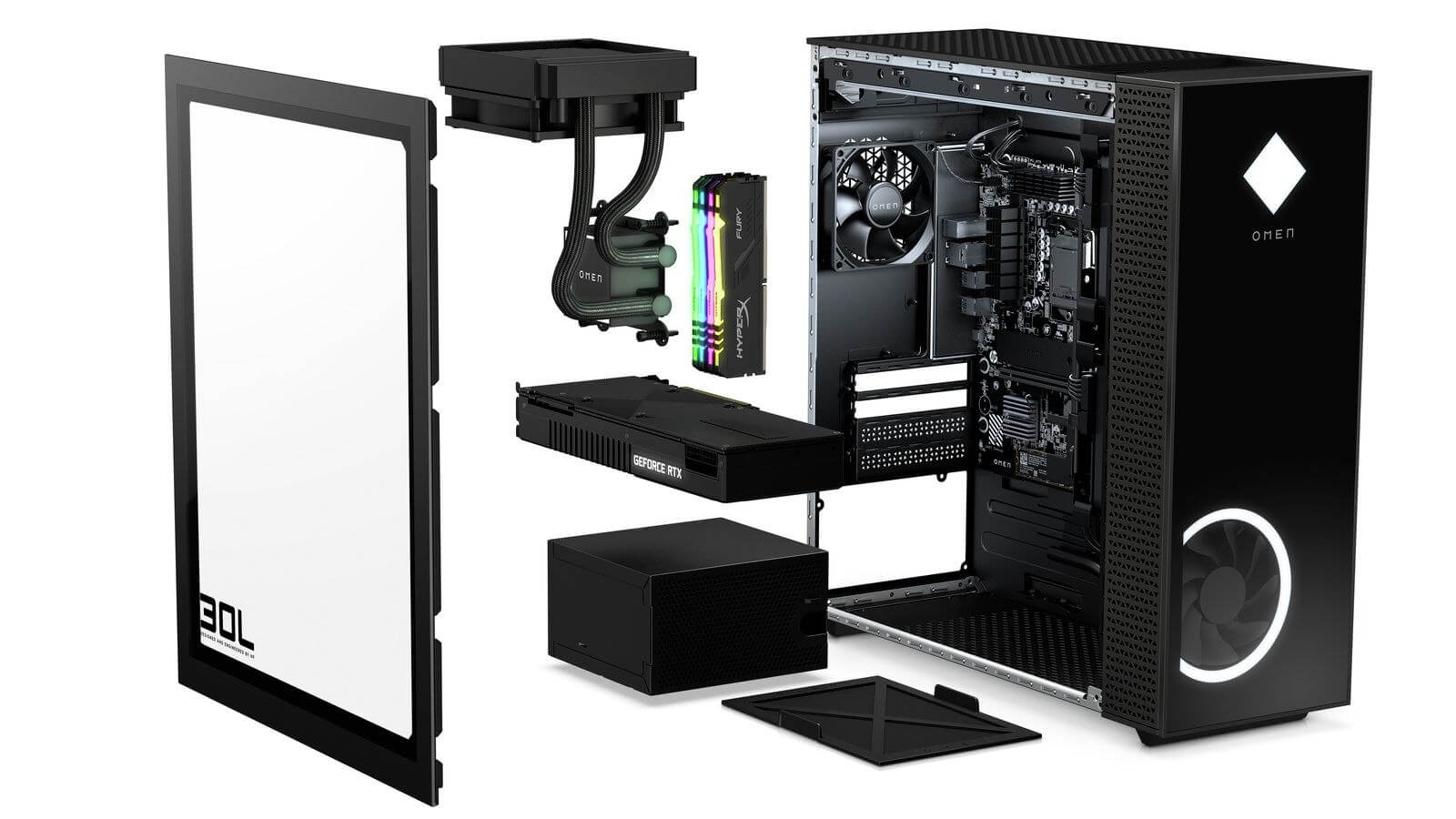In brief: HP's gaming-focused "Omen" device line-up got some fresh new product additions today, including two new pre-built gaming desktops and a G-Sync IPS monitor. Additionally, HP revamped its Omen Command Center software and completely redesigned the Omen logo.
Most of these new announcements and changes will likely be viewed in a positive light by the community, but the Omen logo revamp may prove particularly controversial. Instead of the old tribal mask-like logo that Omen boasted, HP has changed it to be much more simplistic.

It still has the same diamond shape, but it now features a simple pink-to-orange color gradient and the word "Omen." There are no distinctive shapes of any kind, and some have argued that this change eliminates the Omen brand identity.
HP, for its part, is quite happy with the new logo, and feels the fresh look will create a "new visual identity" that can "appeal to the entire gaming community."
We'll let our readers decide whether or not the logo accomplishes that task. For now, let's move on to HP's other Omen announcements, starting with its two latest pre-built desktops; the Omen 25L and 30L. Visually, the desktops look quite sleek, with modern, understated black chassis and vibrant front-facing diamond-shaped LEDs.
When it comes to hardware, things get a bit confusing. HP vaguely says the machines can house "up to" an RTX 2080 Ti or an RX 5700 XT, as well as up to an i9-10900K or a Ryzen 9 3900. However, the company doesn't say which machine can support which hardware -- they only list the starting price for both machines, which is $900 for the 25L and $1200 for the 30L.

HP's new Omen 30L.
Apparently, the 25L ships with an AMD Ryzen 7 3700X CPU, an RX 5700 GPU, and 16GB of DDR4-3200 RAM (expandable to a maximum of 32GB). As far as storage goes, the 25L features two main drives: a 512GB PCIe NVMe m.2 SSD, and a 1TB 7200RPM SATA HDD.
The 30L apparently has the same CPU as its smaller cousin (though it appears to be watercooled in the product photos), as well as the same RAM and storage specs. It does swap out the 5700 for an RTX 2060, but that's the only major hardware change we were able to find, which seems a bit unusual. We're not sure that baseline support for real-time ray-tracing and a fancier case warrant a $300 price premium.

Since the "Shop Now" links for both machines still redirect to HP's old Omen desktops, it's difficult to confirm exactly what the configuration options are for these products. However, the desktops are shipping out tomorrow, so those options will likely be available then -- if so, we'll come back and update this article with (hopefully) more clear information.
Regardless, both machines ship with Windows 10 Home, a "Black Wired keyboard and mouse" combo, and nearly-identical sets of external I/O ports (see the full list here).
The final major Omen announcement of the day was HP's all-new Omen 27i, the company's first gaming-oriented IPS monitor. As we mentioned earlier, it has G-Sync support, as well as a 27" screen with a 2560x1440p resolution and 350 nits of peak brightness.

It has a maximum refresh rate of 165Hz, and a 1ms response time, achieved through overclocking. The monitor's bezels appear to be quite thin, and the overall design is attractive enough by modern standards. While the 27i is nothing revolutionary, it's a reasonably compelling deal at $500 -- other IPS monitors with similar specs frequently cost much more.
You can order a 25L or 30L starting tomorrow (May 5), but the Omen 27i is available for purchase now.
https://www.techspot.com/news/85092-hp-revamps-omen-gaming-pc-line-up-fresh.html